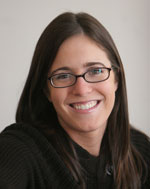Twenty Something / Christina Capecchi
The art of saying ‘no’
 Somewhere along the line, as college admission rates plunged and smartphones proliferated, “busy” became code for “important.” We got the sense that doing more means doing better. We fed into the flattery, the idea that a busy person is in demand—qualified, experienced, needed, loved. The person with the fullest calendar wins.
Somewhere along the line, as college admission rates plunged and smartphones proliferated, “busy” became code for “important.” We got the sense that doing more means doing better. We fed into the flattery, the idea that a busy person is in demand—qualified, experienced, needed, loved. The person with the fullest calendar wins.
Even our social lives got blocked up and assigned out, so now a group of three friends requires a dozen e-mails to uncover an available date, which may be a month out. The response to this scheduling bottleneck is a kind of mystified satisfaction—“Would you look at us!”
The root of the problem is a 21st-century phobia afflicting many talented, well-intentioned Catholics: the fear of saying no.
This time of year is fraught with invitations, as councils and committees grind into gear after a summer hiatus, each with a major fundraiser in need of stronger marketing muscle. Be wary.
While the inability to say no can have financial and physical consequences, from loss of income to lack of sleep, ultimately it is a spiritual issue. I was reminded of this during a conversation with Dr. Javier Diaz, a 39-year-old Jesuit brother who is in formation to become a priest while working as the only full-time family doctor at a clinic in Washington, D.C. With a warm smile and salt-and-pepper hair, he wears a white lab coat over his Roman collar and speaks with a thick Costa Rican accent.
“The inability to say no to proposals, to me, is the biggest challenge,” Brother Javier said. “I think in religious life it can be even worse because there are so many expectations for the religious.”
Finding the conviction to say “no,” he told me, begins with humility. “In some ways, it’s to forgive yourself about things you cannot cope with. Many times, I have to say to my patients, ‘Look, I’m not God. I’m human.’ ”
In replying to many worthy requests, Brother Javier has learned not to be hasty. “My first response is, ‘I have to check with my superior.’ And then we go to prayer before we commit ourselves. That’s when we ask, ‘What does God really want me to do right now? What is the priority?’ It’s a way to pause and say, ‘Now if I commit to this, I cannot do that.’ ”
This, I think, is key—and it’s where I get into trouble. Rarely is an immediate answer needed. (If it is, that’s not your fault.) So take your time. Use a variation of Brother Javier’s line: “I have to check with my husband.” “I’d like to consult my spiritual director.” “I want to pray about it.” Or simply, “Let me sleep on it.”
That reflects an underlying thoughtfulness, a respect for whatever cause or committee is seeking your time, a desire to do it justice. Just because a project appeals to you and taps into your skills doesn’t mean the timing is right. Maybe you’d be better equipped to help with next year’s fundraiser.
By taking on something new, consider what is being compromised. Your prayer life? Your family life? Your sleep schedule? Your exercise routine? A “yes” to one commitment requires a “no” to another.
Brother Javier relates to lay people whose big hearts lead to stuffed calendars. “Breathe deeply,” he advises. “In Jesuit spirituality, it’s important to count our blessings at the end of the day.”
In doing so, we rediscover the basics, the richness of love right at home, where no resumé-building is needed, where you are always enough, where there is a sufficiency, a completeness, an abundance of good.
(Christina Capecchi is a freelance writer from Inver Grove Heights, Minn. She can be reached at www.ReadChristina.com.) †
 Somewhere along the line, as college admission rates plunged and smartphones proliferated, “busy” became code for “important.” We got the sense that doing more means doing better. We fed into the flattery, the idea that a busy person is in demand—qualified, experienced, needed, loved. The person with the fullest calendar wins.
Somewhere along the line, as college admission rates plunged and smartphones proliferated, “busy” became code for “important.” We got the sense that doing more means doing better. We fed into the flattery, the idea that a busy person is in demand—qualified, experienced, needed, loved. The person with the fullest calendar wins.